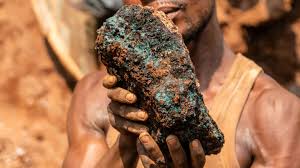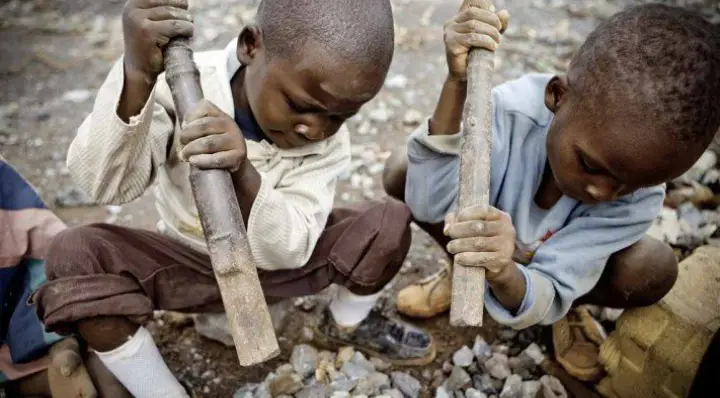Critical EV Metals Mining in DRC: Devastating Impact on Local Lives.
A new report from Amnesty International, in collaboration with the Initiative for Good Governance and Human Rights (IBGDH), has revealed significant human rights abuses associated with the mining of cobalt and copper in the Democratic Republic of Congo (DRC).


A new report from Amnesty International, in collaboration with the Initiative for Good Governance and Human Rights (IBGDH), has revealed significant human rights abuses associated with the mining of cobalt and copper in the Democratic Republic of Congo (DRC).
These metals are critical components in the production of electric vehicle (EV) batteries and other green technologies, driving a surge in demand.
Read: Is cobalt violating the rights of the Congolese?
Forced Evictions and Human Rights Violations
The report highlights that the expansion of mining operations in the DRC has led to widespread forced evictions, often without fair compensation or adequate resettlement plans.
Many residents have been uprooted from their homes and farmland, causing severe disruptions to their lives and livelihoods.
In the city of Kolwezi, the reopening of a large copper and cobalt mine has displaced thousands of people, many of whom were not properly consulted or informed about the demolitions until it was too late.
Inadequate Compensation and Living Conditions
Those evicted from their homes have reported receiving compensation that is insufficient to secure equivalent housing, forcing them to relocate to areas with inadequate access to basic services such as clean water and electricity.
This has significantly lowered their standard of living. Residents have also expressed that there is little to no effective grievance mechanism or accountability for these actions.
Violence and Intimidation
The report also details incidents of violence and intimidation against residents resisting evictions.
In some areas, such as the settlement near the Mutoshi project, armed forces have reportedly burned down homes and physically assaulted villagers.
These actions have left many, including children, with life-altering injuries and deep psychological trauma.
Related: Congo needs us: Make mining sites in Congo Safe and fair
Calls for Ethical Mining Practices
Amnesty International has stressed the need for a just transition to renewable energy that does not come at the expense of human rights.
The organization calls for mining companies to implement practices that respect the rights of local communities, ensure fair compensation, and provide transparent and accountable grievance mechanisms.
This call to action emphasizes that the shift away from fossil fuels should not perpetuate the exploitation and abuse experienced during the colonial and post-colonial eras.
Conclusion
While the demand for cobalt and copper is set to increase dramatically due to their essential role in the green energy transition, it is crucial to address the severe human rights abuses occurring in their extraction.
Ensuring that mining practices in the DRC are ethical and just is essential for a truly sustainable future.




